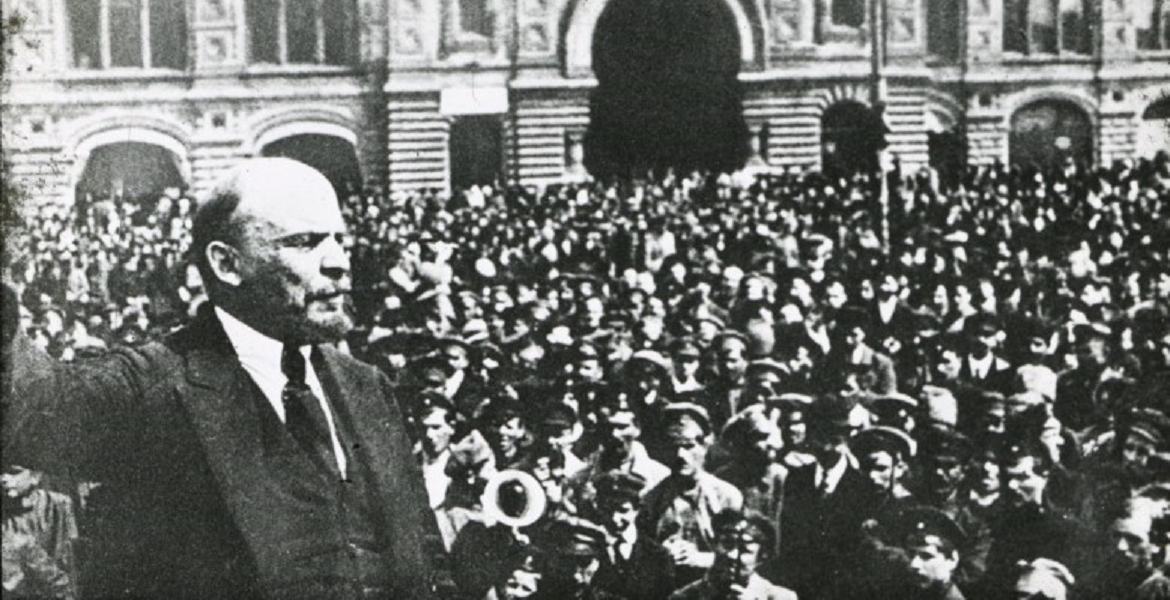This article delves into the fundamental concept of politics, exploring its origins, significance, and implications in governance.
An additional section brings a micro-perspective by examining the Australian Christians viewpoint on politics, offering a nuanced understanding of the influence of faith-based politics in a broader context.
Politics, often characterised by its manifestations in campaigns, elections, and parliamentary debates, fundamentally roots itself in the ancient struggle for power and governance.
Central to this dynamic is the allocation of resources and rights, exemplified by Harold Lasswell’s framing: “who gets what, when, and how.”
While this core understanding transcends global borders, the nuances and motivations behind political movements vary. Australian Christians, for instance, underscores the unique interplay of faith and politics, providing a lens to study political motivation in a contemporary context.
What is Politics?
Definition:
Beyond the surface-level machinations of elections and policies, politics fundamentally concerns itself with the structures and processes that determine group decision-making.
It engages with the dynamics of power, representation, and collective choice within any organised group or community.
From local councils deciding on community issues to international bodies shaping global directives, politics is omnipresent.
Origin:
Tracing back to its etymological roots, ‘politics’ derives from the Greek word ‘polis,’ denoting city-states in Ancient Greece.
These polities were more than mere cities; they were independent entities with their own governments and systems of governance.
The agora, or public space, in these city-states was where free males deliberated on public matters, making decisions that bound the community.
This historical setup provides the earliest prototypes of democratic governance, laying the groundwork for modern political systems.

Why is Politics Necessary?
Order and Stability: In the absence of political structures, societies risk descending into anarchy. Politics institutionalises the processes by which decisions are made and implemented, creating a predictable and stable environment.
Through laws and regulations, politics delineates rights and responsibilities, thereby offering a structured framework that prevents chaos. For instance, without traffic laws and their enforcement (a political decision), road systems would be chaotic and dangerous.
Representation: At its best, politics serves as a medium through which diverse societal interests are represented. Representative democracies, for instance, elect individuals to represent the interests of their constituents. This system ensures that even minority voices can influence decision-making, leading to more inclusive and just societies.
Resource Allocation: Scarce resources necessitate decisions about their distribution. Whether it’s deciding on funding for public schools versus highways or allocating medical resources during a crisis, politics offers mechanisms for making these tough choices.
By doing so, it reflects a society’s priorities and values, determining, for instance, whether healthcare, education, or defense receives the most significant portion of a national budget.
Conflict Resolution: Human societies, by virtue of diverse interests and opinions, are prone to conflicts. Political systems, especially in democracies, provide non-violent avenues for conflict resolution. Mechanisms like dialogue, debate, and negotiation in political forums allow competing interests to find common ground or, at the very least, manage disagreements without resorting to violence.
In summary, politics, while often perceived through its more visible manifestations, remains crucial in structuring societies, representing diverse interests, allocating resources, and resolving conflicts. Examining entities like the Australian Christian Party allows us to understand the myriad motivations – from faith to economics – that underpin political activity.
Different Systems in Politics
Democracy:
- Definition: Democracy is a system of governance wherein power inherently resides with the citizens. This power can manifest directly, where citizens shape laws and policies, or indirectly, where representatives elected by the people make decisions on their behalf.
History & Australia’s Experience:
- Ancient Origins: Tracing back to Ancient Athens, the idea of ‘rule by the people’ laid the foundation for democratic systems worldwide.
- Australia’s Democratic Journey: Australia, inheriting the Westminster system from the British, is one of the world’s oldest continuous democracies. Important milestones include the implementation of the secret ballot (often called the “Australian ballot”), women’s suffrage in the early 20th century, and notably, the recognition of Indigenous Australians’ voting rights in 1962 at the federal level.
- Modern Practice: Today, Australia stands as a federal parliamentary constitutional monarchy, emphasizing principles like rule of law, periodic elections, and a robust system of checks and balances.
Socialist States:
- Definition: Socialism champions a system where major means of production and distribution are collectively owned or controlled by the community or state.
History & Australia’s Engagement:
- Global Perspective: From the industrial revolution’s backdrop, socialism arose as a critique of capitalism’s inequities. Figures like Karl Marx propelled socialist thought into global consciousness.
- Australia’s Experience: While Australia has primarily a market-based economy, elements of socialism are evident in universal healthcare, public education, and welfare systems. The Australian Labor Party, historically rooted in workers’ movements, occasionally echoes socialist principles, particularly in its early days.
- Cold War Era: During the 20th century, Australia, aligned with the West, often took positions opposing socialist or communist states, especially during events like the Vietnam War.
Communism:
- Definition: Communism is a political and economic ideology rooted in the principles of communal ownership and the absence of class structures. All property is publicly owned, and each individual works and is paid based on their abilities and needs.
History & Australia’s Engagement:
- Global Perspective: Communism, as an organized political movement, largely began in the 20th century, inspired by the writings of Karl Marx and Friedrich Engels in the “Communist Manifesto”. The Bolshevik Revolution in 1917 led to the establishment of the first communist state in Russia.
- Australia’s Experience: During the Cold War, Australia, as a member of the Western bloc, took a stance opposing communist expansion. This alignment led to Australia’s involvement in events like the Korean War and the Vietnam War. On the home front, there were concerns in the 1950s and 1960s about communist influence, especially within trade unions, leading to political tensions and the establishment of bodies like the Australian Security Intelligence Organisation (ASIO) to monitor potential threats.
- Current Dynamics: While Australia has never had a major communist party in power, various small parties and groups uphold communist principles. Relations between Australia and prominent communist nations, like China, have been central to foreign policy discussions, especially in trade and geopolitics.
Faith-based Politics vs. Secular Political Parties:
-
Faith-based Politics:
- Global & Australian Context: Throughout history, various global civilisations have intertwined religion and governance. In Australia, parties like the Australian Christians emerge from concerns about declining religious values in public policy.
- Policies & Influence: Such parties advocate for policies reflecting their religious teachings, which in Australia relate to topics like family values, marriage, education, and bioethical issues.
-
Secular Political Parties:
- The Australian Context: Australia, with its diverse culture and strong secular tradition, has a range of political parties like the Australian Christians Party, Australian Labor Party, Liberal Party, and the Greens that focus on secular governance.
- Policies & Influence: While individual members might possess strong religious beliefs, these parties prioritise economic, environmental, social, and strategic factors in their policy-making over religious teachings.

The Australian Christians’ View on Politics
Navigating the vast and multifaceted political landscape of Australia is the Australian Christians, a party with a distinct voice blending faith with political aspirations.

Origin and Mission: Formed in 2011, Australian Christians emerged with the aim to provide a bold voice for faith, families, and freedom in the political milieu. Beyond representing a religious perspective, the party seeks to challenge the typical political narrative and ensure that Christian values remain prominent in Australian legislative processes and policies. Australian is a rapidly growing force in the Western Australian political sphere.
Perspective on Politics: Australian Christians see politics as more than just a platform for administrative or secular debates. For them, it’s a vital domain where Christian ethics should be evident and celebrated.
They assert that a political framework influenced by Christian values is the cornerstone of a society marked by fairness, compassion, and ethical governance. In essence, politics, in their perspective, is not just about governance, but it’s a reflection of the moral choices and directions a society wishes to adopt.
Key Political Stances:
Upholding biblical principles at the core of our policy recommendations, the party’s agenda revolves around:
- Accountability and Integrity in Governance: A resounding theme for the Australian Christians is the need for a transparent, accountable, and integral system of governance. They stress the importance of cutting through political noise and maintaining unwavering moral standards in legislative decisions.
- Promotion of Family Values: With a commitment to the ideals of faith and family, the party emphasizes policies that they believe uphold and protect traditional family structures and values.
- Modeling Biblical Values: Above all, the Australian Christians endeavor to embed values such as honesty, respect, moral law, freedom, justice, hope, and sacrifice in all their political undertakings, ensuring their actions and decisions reflect these foundational principles.
Conclusion
Politics is an embodiment of a society’s values, directions, and aspirations. While its primary functions remain consistent globally, the underlying motivations and visions driving political entities are incredibly diverse.
The Australian Christians epitomise this diversity, illustrating how deeply rooted beliefs, anchored in faith, can provide a refreshing and morally guided perspective in the political dialogue.
Did You Know?
- Ancient Athens which is often heralded as the birthplace of democracy had a unique method of ensuring representation. They practiced a system called “sortition” where officials were chosen by lot (similar to drawing straws) from a pool of citizen volunteers. This was done to ensure that public offices were accessible to all citizens and not just the elite emphasizing the idea of democracy as a ‘rule by the many’.
- The concept of the “Australian ballot” or secret ballot where voters choices are anonymous originated in Australia during the mid 19th century. This revolutionary voting method was adopted to ensure that elections were free from bribery or intimidation. Today the secret ballot is a cornerstone of democratic elections worldwide.
- Sir Edmund Barton Australia’s first Prime Minister was only in office for two years from 1901 to 1903. Yet under his leadership significant foundational legislation was passed including the Immigration Restriction Act which formed the basis of the controversial “White Australia” policy. This policy aimed to limit non European immigration and was only fully dismantled in the mid 1970s.











